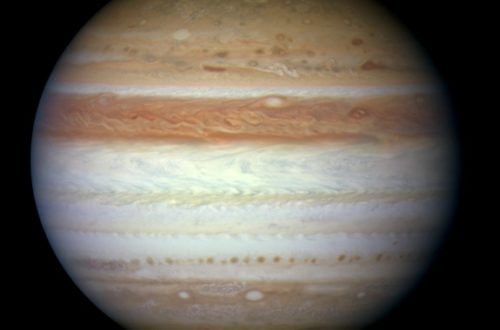Why Is Venus the Hottest Planet?

Have you ever wondered why Venus is considered the hottest planet in our solar system?
In this article, we will explore why Venus is so hot and understand why it even surpasses Mercury in terms of temperature. We will delve into the factors that contribute to Venus’s intense heat and discover what makes this planet stand out.
What is the temperature on Venus?
Venus’s average surface temperature of 464 °C is hotter than the surface of any other planet in our solar system. This extreme heat is comparable to the temperature of molten lead and is capable of melting most metals.
Why is Venus hotter than Mercury?
Many might assume that the planet closest to the Sun, Mercury, would be the hottest in our solar system. Surprisingly, this is not the case. Venus, the second planet from the Sun, actually holds the title for the hottest planet. The average surface temperature on Venus is a scorching 464 °C, while Mercury’s average temperature is a much milder 167 °C.
Even the maximum daylight temperature at the equator on Mercury is still lower than on Venus, at 427 °C. Mercury’s temperature fluctuates wildly between the day and night because it lacks a significant atmosphere.
Why is Venus so hot?
Atmospheric composition
One of the primary reasons for Venus’s extreme heat is its thick atmosphere composed mainly of carbon dioxide. It is 92 times as dense as Earth’s atmosphere. This dense blanket of greenhouse gases traps heat from the Sun, creating a runaway greenhouse effect. The greenhouse effect occurs when these gases absorb and re-radiate the Sun’s heat back towards the planet’s surface, preventing it from escaping into space. As a result, the temperature on Venus continues to rise.
Runaway greenhouse effect
The runaway greenhouse effect on Venus is unique and plays a significant role in its extreme heat. Unlike Earth, where a balance is maintained between the absorption and release of heat, Venus has experienced an amplification of the greenhouse effect. The excess carbon dioxide in its atmosphere acts as an insulating layer, leading to a staggering increase in temperature.
Conclusion
Venus’s status as the hottest planet in our solar system can be attributed to its dense carbon dioxide atmosphere, which creates a runaway greenhouse effect. These factors make it hotter than even Mercury, the closest planet to the Sun. Understanding the reasons that make Venus so hot not only expands our knowledge of planetary science but also highlights the delicate balance necessary for maintaining habitable conditions on Earth. So the next time you gaze up at the night sky, spare a thought for the blazing temperatures that make Venus one of the most extreme environments in our cosmic neighborhood.
Would you like to receive similar articles by email?





